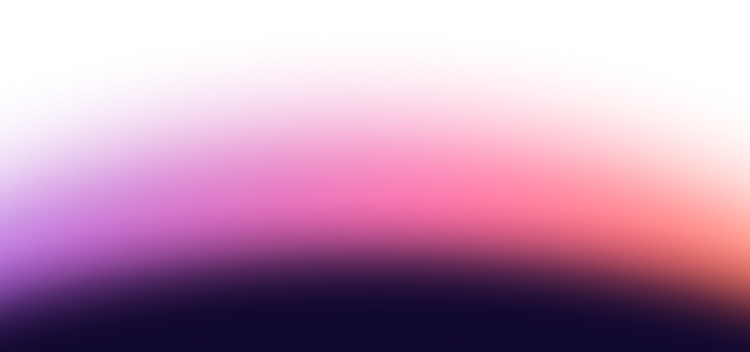Fault-Tolerant Computing refers to the ability of a computing system to continue functioning correctly even in the presence of errors or faults. In quantum computing, fault tolerance is particularly challenging due to the fragile nature of quantum information and the susceptibility of qubits to noise and decoherence. Developing fault-tolerant quantum computers is essential for performing large-scale, reliable quantum computations.
The cornerstone of fault-tolerant quantum computing is Quantum Error Correction (QEC). QEC involves encoding logical qubits using multiple physical qubits and implementing error detection and correction procedures. By carefully choosing the encoding and error correction scheme, it's possible to detect and correct errors without disturbing the encoded quantum information. This allows for the execution of complex quantum algorithms with a level of error that can be made arbitrarily small.
In addition to error correction, fault-tolerant computing requires the careful design of quantum gates and protocols that can operate in the presence of errors. Fault-tolerant gates must be able to perform the desired operations without spreading or amplifying existing errors. Various techniques, such as magic state distillation and encoded gate operations, have been developed to achieve fault-tolerant control over quantum systems.
Fault-tolerant computing is vital for the future of quantum computing, enabling the creation of large-scale quantum computers capable of solving problems intractable for classical computers. However, achieving fault tolerance is highly challenging. It requires significant overhead in terms of additional qubits and computational resources, and the design and implementation of fault-tolerant systems are complex and demanding tasks.
Research into fault-tolerant computing is one of the most active and critical areas of quantum computing. It includes the development of new error correction codes, fault-tolerant algorithms, hardware improvements, and theoretical insights into the nature of quantum errors and fault tolerance. Progress in this field will pave the way for practical quantum computing applications in areas such as cryptography, material science, optimization, and more.
Fault-Tolerant Computing represents a sophisticated and essential aspect of quantum computing. It's a field that bridges the gap between the theoretical potential of quantum computing and the practical challenges of building and operating quantum devices.
What is Fault-Tolerant Computing?
Classical computers are not perfect. They generate errors and faults. Therefore, fault tolerance is the ability to perform accurate computation despite these errors and faults, because the errors are corrected. These faults are tolerated. Quantum computers are particularly sensitive to their respective environments, which results in significant errors. Consequently, the usefulness of quantum computers is limited until fault tolerance can be realized on par with classical computing.
For detailed information, an IEEE Spectrum article titled “How to Build a Fault-Tolerant Quantum Computer” provides a high-level explanation of fault tolerant computing systems, particularly in regard to redundancy. Essentially, redundant quantum information would exist on many physical qubits, enabling the detection and correction of errors. Roughly 1000 physical qubits would constitute a single logical qubit, an abstraction which can then be used for fault-tolerant computation. One of the fault tolerant computing challenges, therefore, is connecting logical qubits, since there are no single logical qubits in actuality, but rather large clusters of physical qubits. The article also describes research involving 16 physical qubits, which shows progress being made toward fault tolerance, but at the same time hints at the timeline for actually realizing it.
For a theoretical framework, a paper titled “An introduction to Fault-tolerant Quantum Computing” by Alexandru Paler of the University of Passau and Simon J. Devitt of Ochanomizu University also focuses on redundancy. The fundamental difference with the IEEE Spectrum article is that the article is written at a level for general audiences, whereas this paper uses notation that requires some specialized knowledge to fully understand.
For an experimental framework, an npj Quantum Information paper titled “Fault-tolerant quantum computation with few qubits” provides numerous quantum circuit diagrams. The authors note that the use of a 15-qubit Hamming code, using a total of 19 qubits, represents an experiment toward fault-tolerance, not actual fault tolerance. It’s worth noting that many quantum computers are still not large enough to allow experimentation with qubit counts higher than this.
Principles of Fault-Tolerant Computing
There are principles of fault tolerance that are applicable to both classical and quantum computing.
- Redundancy. In the case of quantum computing, information has to be spread over a large number of qubits in order to enable error detection and correction.
- Fault tolerance. This is defined equally, in that it is the prevention of cascading errors in such a manner so as to prevent a catastrophic failure of the computation.
- Quantum Error Correction Codes (QECC). These codes are the algorithms for detecting and correcting errors as they arise.
Fault-tolerant gates are not applicable to classical computing, but they’re important for quantum computing. Every single-qubit operation introduces a small probability of error, and every multiple-qubit operation has an error rate roughly 10 times higher than that. Therefore, the execution of gates needs to be improved.
Techniques in Fault-Tolerant Computing
Classical computing techniques are understandably more developed. However, techniques for fault-tolerant quantum computing are progressing:
- Logical. The concept exists in classical computing; for quantum computing it refers to a cluster of physical qubits acting as a single fault-tolerant qubit.
- Surface codes. These are not algorithms, like error correction codes. Rather, surface codes refer to the physical layouts of the qubits and their connectivity.
- Modalities. Transistors have improved over time. In a similar way, research is ongoing into better qubits, those that are perhaps more resilient to errors.
Error mitigation is receiving more and more attention over time. Unlike error correction, which is applied during execution, error mitigation is applied after execution. Because quantum computers have unique noise models, classical machine learning models can take noisy measurement results, apply these noise models in reverse, and improve the quality of the results.
.webp)


